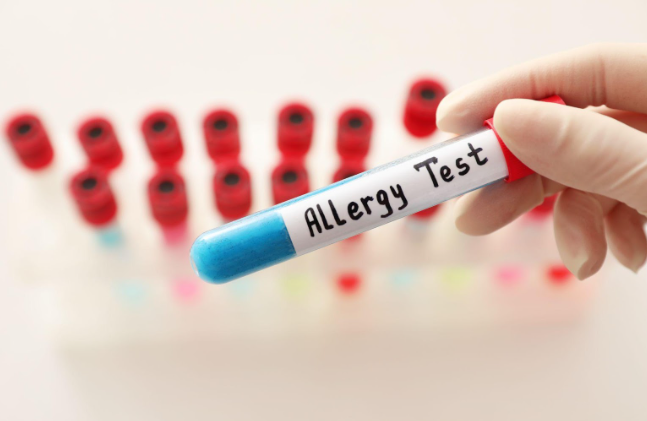Preventive Care 101: The Importance of Regular Check-Ups
Preventive Care 101: The Importance of Regular Check-Ups

Preventive care is not just a medical recommendation—it is a proactive approach to maintaining your health and avoiding serious illnesses. Many people underestimate the value of regular check-ups, often postponing medical visits until symptoms appear. However, these routine appointments are integral in identifying potential health issues early and providing a healthier future.
What Is Preventive Care?
Preventive care focuses on taking action to avoid diseases before they occur. Unlike treatments that address existing conditions, preventive care emphasizes regular screenings, lifestyle guidance, and vaccinations. This approach helps detect problems in their early stages when they are easier to manage or treat.
Healthcare providers recommend tailored preventive care plans based on individual factors like age, gender, medical history, and lifestyle. These plans often include regular
physical exams, lab tests, and discussions about health goals and risks.
Early Detection Saves Lives
One of the primary benefits of preventive care is early detection. Regular check-ups allow doctors to spot warning signs of chronic diseases such as diabetes, hypertension, and certain cancers before symptoms manifest.
For example, routine blood pressure and cholesterol checks can identify
cardiovascular risks, enabling timely intervention. Similarly, mammograms and colonoscopies help detect breast and colorectal cancers in their early stages, often before they spread.
Building a Relationship with Your Healthcare Provider
Timely check-ups provide an opportunity to build a strong relationship with your healthcare provider. Over time, your doctor better understands your medical history, lifestyle, and concerns. This familiarity enables personalized care and improves communication.
When you see your doctor regularly, you are more likely to discuss subtle changes in your health, even those you might not consider significant. These conversations can lead to valuable insights and preventive measures.
Managing Chronic Conditions
Preventive care is necessary for those with chronic conditions like asthma, arthritis, or diabetes. Regular appointments ensure that these conditions are monitored effectively, preventing complications and improving quality of life.
For instance, a diabetic patient who attends routine check-ups can receive guidance on blood sugar management, medication adjustments, and dietary recommendations. These measures help keep the condition under control and prevent long-term damage to organs.
The Role of Vaccinations
Vaccinations are a vital component of preventive care. They protect individuals and communities from infectious diseases, reducing the risk of outbreaks. Vaccines for illnesses like influenza, pneumonia, and HPV help maintain public health.
Healthcare providers recommend vaccination schedules based on age, occupation, and travel plans. Staying up-to-date with immunizations confirms that your body is prepared to fight infections effectively.
Addressing Lifestyle Factors
Preventive care also focuses on lifestyle factors that impact health. During check-ups, healthcare providers often discuss habits like diet, exercise, smoking, and alcohol consumption. These conversations provide practical advice for making healthier choices.
Small changes, such as incorporating regular physical activity or improving nutrition, can have a significant impact on overall well-being. Preventive care empowers individuals to take charge of their health by addressing these modifiable risk factors.
Mental Health
Proactive care extends beyond physical health to include mental well-being. Regular check-ups offer an opportunity to discuss stress, anxiety, and other mental health concerns. Early intervention in mental health issues is just as important as addressing physical ailments.
Doctors can recommend counseling, stress management techniques, or other resources to support mental health. Prioritizing emotional well-being is an integral part of comprehensive preventive care.
Reducing Healthcare Costs
Early detection and management of health issues reduce the need for expensive treatments and hospitalizations. Preventive measures like vaccinations and screenings are more cost-effective than treating advanced diseases.
For example, treating high blood pressure with medication and lifestyle changes is far less expensive than addressing a heart attack or stroke. By prioritizing routine check-ups, individuals can avoid financial burdens associated with serious illnesses.
Overcoming Barriers to Preventive Care
Despite its importance, many people face barriers to accessing preventive care. Common challenges include lack of time, financial constraints, and fear of medical procedures. Addressing these barriers is important for encouraging more individuals to prioritize their health.
Many healthcare providers offer flexible scheduling, telehealth options, and payment plans to make preventive care more accessible. Education about the benefits of routine check-ups can also help alleviate fears and misconceptions.
Making Preventive Care a Priority
Incorporating preventive care into your routine requires commitment and planning. Begin by scheduling an annual physical exam and following your doctor’s recommendations for screenings and tests. Maintain open communication with your healthcare provider and take an active role in managing your health.
Taking preventive measures today can lead to a healthier and more fulfilling life tomorrow. By prioritizing regular check-ups, you equip yourself with the tools needed to avoid serious illnesses and maintain long-term well-being.
Final Thoughts
Preventive care is not just a healthcare strategy; it is a lifelong commitment to your well-being. Regular check-ups empower you to make informed decisions, address potential issues promptly, and enjoy a better quality of life.
By prioritizing preventive care, you take control of your health journey. Start today by scheduling your next check-up and embracing the proactive approach that keeps you one step ahead of serious illnesses.
Prioritize your health with our team at
Sisselman Medical Group, where expert care meets personalized attention. Schedule your preventive check-up today to stay ahead of potential health issues and enjoy peace of mind. We are here to support your journey to better health with tailored solutions for your unique needs.
Book your appointment today and make your well-being a priority!











